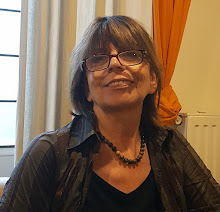Excerpts from my presentation at "Leading Change - Coaching 12" Conference, Bucharest, 23 May 2012
Asking is changing
“A fundamental limit on the precision with which certain pairs of physical properties of a particle, such as position 'x' and momentum 'p', can be simultaneously known.”
(Uncertainty Principle)
Evaluation session is grounded in
asking questions:
Gathering/sending information
Building/maintaining relationship
Awaking creativity/Solving problems
Resolving conflicts/Making decisions
Staying on the track/Initiating action
Managing individual change
Questions are the most influential and creative aspect
of speaking and listening.
How to develop a systematic way of questioning:
—Thinking about
—Designing
—Asking
“Only new questions
can call for new answers.”
(M.C. Goldberg)
Assessment conversation
Look who’s talking too
:)
There are internal conversations both verbal and nonverbal, and the questions asking inside
program our thoughts, feeling and actions
in site/sight.
Daniel Kahneman on the difference betweenexperience selves (ES) and remembrance selves (RS).
Daniel Kahneman on the difference betweenexperience selves (ES) and remembrance selves (RS).
The ES lives its life continuesly, it has moments of experience – one aftter the other. (..)The RS defines a story - the story the memory delivers for us, and is also true that we make up changes, significant moments and endings, endings are very very important. (..)”
When asking a question are you as a manager-coachexperiencing your living-in-the present self oryou are preparing a story for your remembrance self?!
When answering a question is the employee-client experiencing the living-in-the-present selfor he is preparing a story for her/his remembrance self?





